Science Media SAVVY in Auckland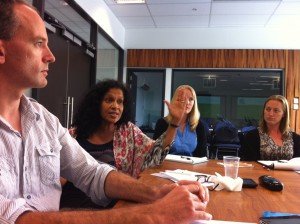
Twelve keen scientists were put through their paces in Auckland in mid-March in the second of the Science Media Centre’s national series of media skills workshops.
More than basic media training, the course is designed to move scientists out of their comfort zone, increasing awareness of how their choice of words, body language and intensity can enable them to connect with different audiences, and providing direct feedback and support from fellow scientists.
The course also offers a unique chance to make valuable media contacts and gain first-hand insight into news media practices during an invited journalists’ panel and newsroom tour on day two. New skills are then put to the test in a story pitch session directly to visiting journalists.
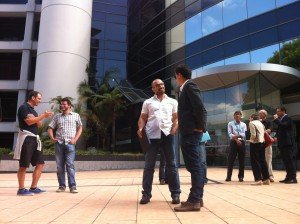 An open call for SAVVY scientists in February asked applicants to outline a research area of potential interest to media and explain why they were keen to further develop their media skills. After an intensely competitive selection process, the final list of participants included researchers from AUT University, Plant & Food Research, the Liggins Institute, Unitec, the MacDiarmid Institute and the University of Auckland.
An open call for SAVVY scientists in February asked applicants to outline a research area of potential interest to media and explain why they were keen to further develop their media skills. After an intensely competitive selection process, the final list of participants included researchers from AUT University, Plant & Food Research, the Liggins Institute, Unitec, the MacDiarmid Institute and the University of Auckland.
Participants had a broad range of prior media experiences, and mid-career researchers and PhD candidates shared the table with professors and Heads of Department. Scientists told us that having a diverse range of disciplines and experience levels represented really worked for them and improved the dynamic of the course.
Feedback from scientists on SAVVY:
“I honestly thought this was an amazing course. We had just enough time to cover the important things, were exposed to some great people and got a real insight into the media world with hands-on experience.”
“The workshop exceeded my expectations, was very well-organised and run. I thought I would gain an insight into media, however I learned a lot about how much power I have as a scientist.”
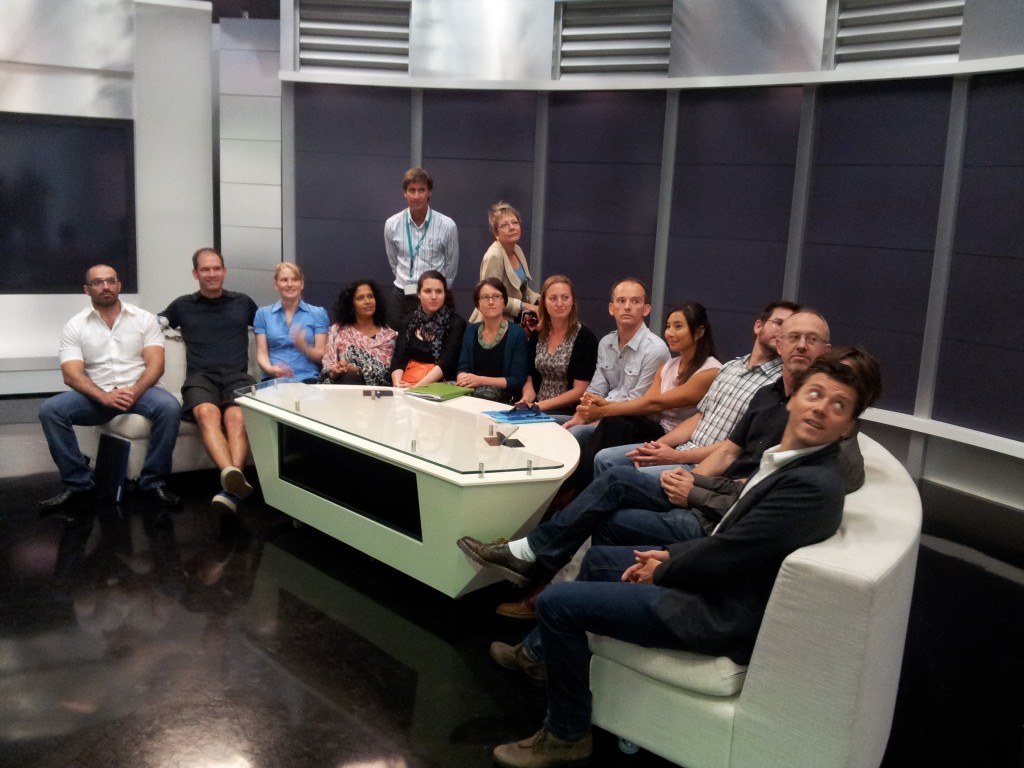
“I had high hopes for this course, and the reality has greatly exceeded what I had expected. When it comes to it, I am sure I will still be nervous at interview time, but the tools I learnt here will equip me well and give me enough confidence to not turn down opportunities any more.”
“There was a nice mix of professionalism and informal discussions — very well run.”
“What sets this experience apart is in-depth information regarding how the news process works and real reporters/professionals’ feedback. The practice pitch to news reporters was fantastic!”
“I feel like I have greater confidence to respond to and seek out media.”
“I was blown away at the value and quality of the workshop. I considered this more valuable than some conferences attended, so great value for money.”
“SAVVY was better than I expected. While I thought it would give good media tips, it actually helped me to workshop the narrative of my research, which I’ll use in funding bids, papers, etc.”
“I had done media training before, but the science focus of this one made it miles better.”
“Great pro-active, forthright interview tips.”
“I feel very excited about future media interactions and the possibilities to get my research in the public eye.”
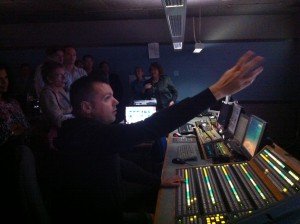
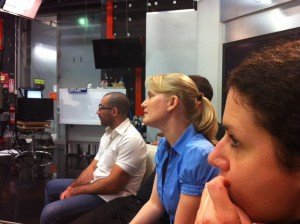
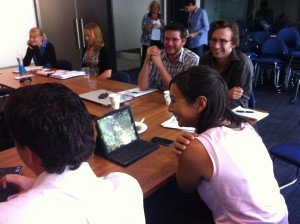
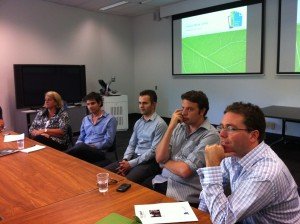 Thanks to our media panel (pictured above, lower right) — Alison Harley – TV3 News, James Frankham – New Zealand Geographic, Will Hine – TVNZ One News, and Jamie Morton – NZ Herald — for their extremely valuable contributions, and to TVNZ’s Jo Mark-Brown for the newsroom tour.
Thanks to our media panel (pictured above, lower right) — Alison Harley – TV3 News, James Frankham – New Zealand Geographic, Will Hine – TVNZ One News, and Jamie Morton – NZ Herald — for their extremely valuable contributions, and to TVNZ’s Jo Mark-Brown for the newsroom tour.
Thanks also to Dr Mark Quigley for his ongoing support of Science Media SAVVY, and to media trainer Michael Brown for his great work on the course. Finally, a huge ‘thank you’ to Pandora Carlyon and SAVVY’s host in Auckland, the Liggins Institute.
Auckland SAVVY alums
Prof Shanthi Ameratunga – Epidemiology, Acting HoD – Injury prevention/health inequality – University of Auckland
Prof Wayne Cutfield – Director of Liggins Institute – Paediatric endocrinology – University of Auckland
Dr Michelle Dickinson – Senior Lecturer – Nanotechnology – University of Auckland
Dr Mark Large – Associate Professor – Evolution biology, Botany systematics – Unitec Natural Sciences
Lisa McDonnell – PhD Candidate – Sport science – AUT University (Quigley postgraduate scholarship winner)
Dr David Pattemore – Scientist – Pollination biology – Plant & Food Research
Dr James Russell – Senior Lecturer – Ecology – University of Auckland
Dr Giovanni Russello – Lecturer – Cloud & smartphone security- University of Auckland
Elaine Smid – Research Assistant – Volcanic hazards – University of Auckland
Lisa Strover – PhD student – Chemistry (polymer science) – MacDiarmid Institute, University of Auckland
Dr Alex Taylor – Lecturer – Animal cognition – University of Auckland (STRATUS scholarship winner)
Dr Mike Taylor – Senior Lecturer – Microbiology – University of Auckland